CALL TODAY 646-846-1136 | EMAIL
Surgical Experts Dedicated to Improving Lives
At Lenox Hill Minimally Invasive Surgery PLLC, Dr. Valery Dronsky and his staff of medical professionals provide compassionate care with the highest ethical & professional standards. In our state of the art facility, we offer surgical services using only the most cutting edge and current procedures and treatments. We specialize in general surgery, including extensive experience in performing hernia repair surgery. Our expertise is in minimally invasive surgery and robotic surgery. Minimally invasive and robotic surgery often allow patients to experience easier recovery than traditional open surgery. They also allow for more precise and less traumatic surgery. When robotic and minimally invasive surgery is not an option, we are also skilled and experienced in traditional open surgical procedures.
Dr. Dronsky is an experienced and highly skilled surgeon having undergone extensive training in school, residency and fellowships. He practices medicine with ethical behavior, compassion and superb bedside manner. In the operating room he exhibits precision mechanical abilities, analytical thinking and the ability to visualize tissue in three dimensions. These innate and learned skills allow Dr. Dronsky to be one of the most dexterous and skilled professionals in New York City and the Country.
Call us: 646-846-1136
PATIENT TESTIMONIALS
Recent Awards
We are honored and deeply appreciative to have consistently received prestigious awards and recognition year after year, establishing us as one of New York’s foremost hospitals for a wide range of general surgeries, safety measures, specialized procedures, and overall excellence in healthcare. At Lenox Hill Minimally Invasive Surgery, our unwavering commitment lies in delivering exceptional care and unwavering support to our patients, guaranteeing their safety and successful recovery throughout their entire surgical experience.
Hospital Quality Awards
 America’s 50 Best Hospitals Award™ (2023, 2022)
America’s 50 Best Hospitals Award™ (2023, 2022)
Top 1% in the nation for providing the highest clinical quality year over year.

America’s 100 Best Hospitals Award™ (2021)
Top 2% in the nation for consistently delivering clinical quality year over year.

America’s 250 Best Hospitals Award™ (2023, 2022, 2021)
Top 5% in the nation for consistently delivering clinical quality.

Patient Safety Excellence Award™ (2023, 2022)
Top in the nation for providing excellence in patient safety by preventing infections, medical errors, and other preventable complications.
Specialty Clinical Quality Awards

America’s 100 Best Hospitals for Cardiac Care Award™ (2023, 2022, 2021, 2020, 2019)
Superior clinical outcomes in heart bypass surgery, coronary interventional procedures, heart attack treatment, heart failure treatment, and heart valve surgery.

America’s 100 Best Hospitals for Coronary Intervention Award™ (2023, 2022, 2021, 2020, 2019)
Superior clinical outcomes in coronary intervention procedures (angioplasty with stent).

America’s 100 Best Hospitals for Prostate Surgery Award™ (2023, 2022, 2021)
Superior clinical outcomes in prostate removal surgery and transurethral resection of the prostate.
Click to see all of our Healthgrades best doctors awards
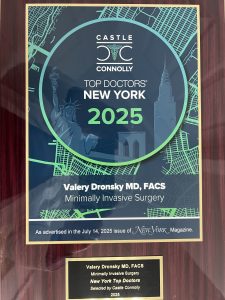
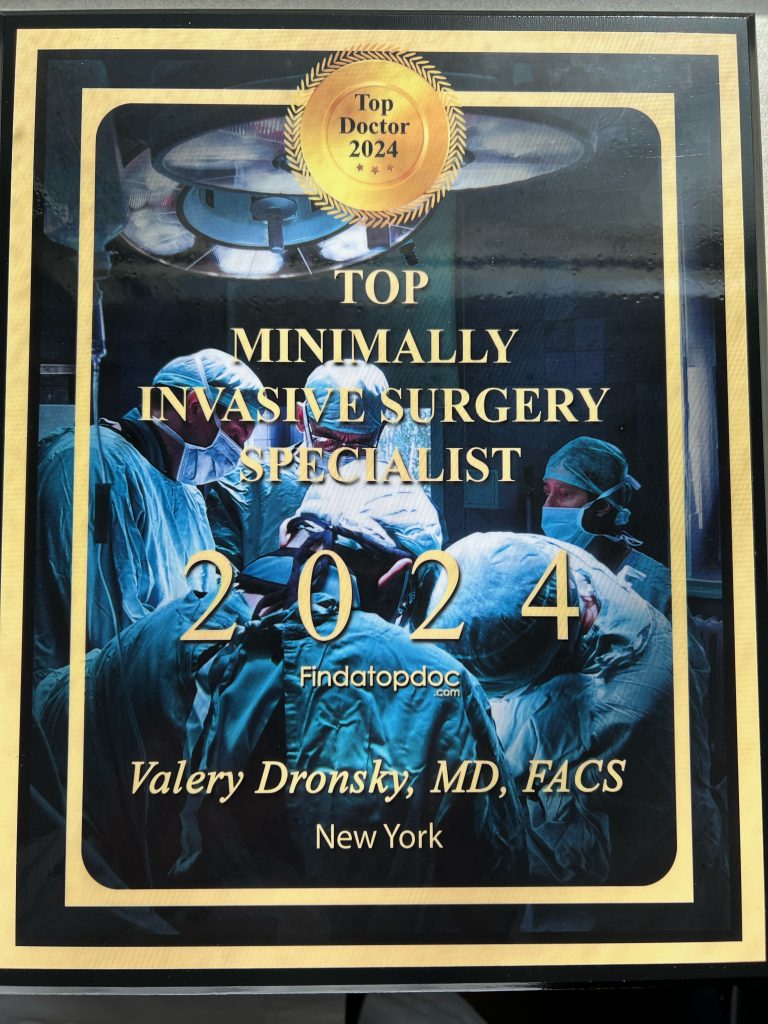
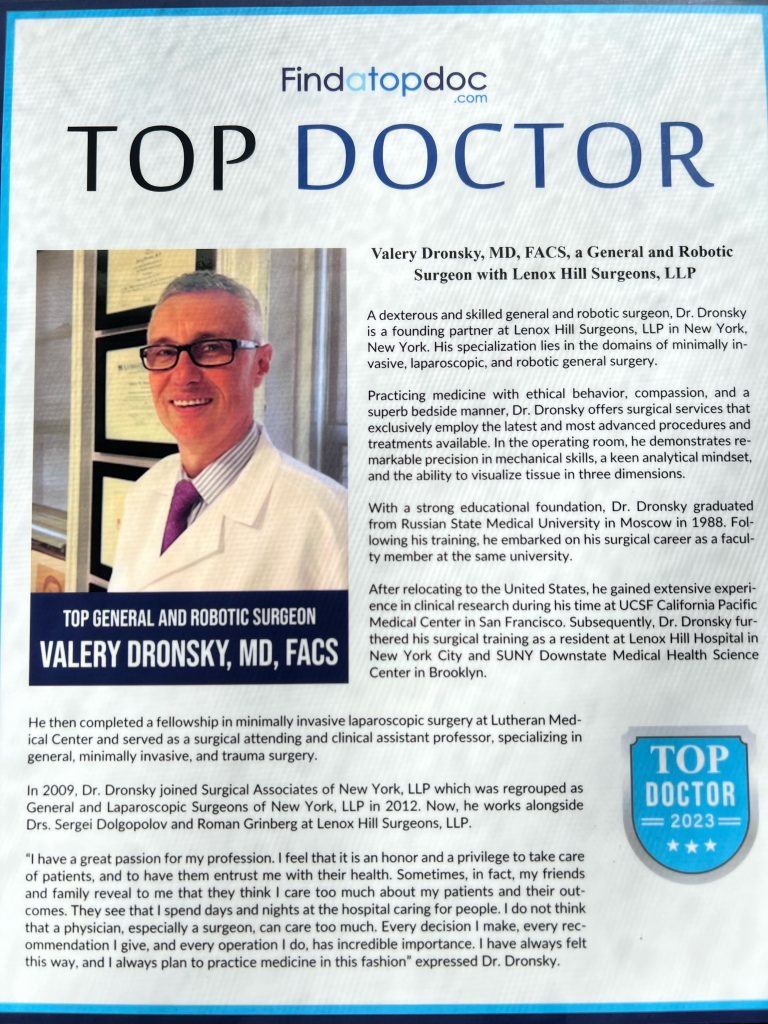


Visit our main website at www.LenoxHillMinimallyInvasiveSurgery.com
Blog Posts are Below:
Category Archives: Liver Surgery
Liver Surgery: Procedures for Liver Diseases and Tumors
In this article, we will explore common liver conditions, their symptoms, and the surgical procedures for liver diseases and tumors. The liver is a vital organ responsible for numerous functions, including detoxification, metabolism, and the production of essential proteins. However, various conditions can affect the liver, ranging from benign liver cysts to liver tumors. When conservative treatments fail to provide relief or when liver tumors require intervention, liver surgery may be necessary. At Lenox Hill Minimally Invasive Surgery, a trusted general surgery practice in New York City, our expert surgeons specialize in liver surgery, offering advanced procedures for liver diseases and tumors.

Common Liver Diseases and Tumors
The liver can be affected by a range of diseases and tumors, including:
1. Hepatitis:
Hepatitis is an inflammation of the liver often caused by viral infections, such as hepatitis A, B, or C. Chronic hepatitis can lead to liver damage and the development of liver diseases.
2. Liver Cirrhosis:
Liver cirrhosis is a progressive scarring of the liver due to long-term damage, typically caused by chronic hepatitis, alcohol abuse, or certain metabolic diseases. Cirrhosis can impair liver function and lead to complications.
3. Liver Cysts:
Liver cysts are fluid-filled sacs that can develop within the liver. Most liver cysts are benign and do not require treatment. However, large or symptomatic cysts may require surgical intervention.
4. Liver Tumors:
Liver tumors can be either benign (non-cancerous) or malignant (cancerous). Benign liver tumors, such as hemangiomas or adenomas, may require surgical removal if they cause symptoms or pose a risk. Malignant liver tumors, such as hepatocellular carcinoma or metastatic tumors, often necessitate surgical treatment, along with other therapies.
Surgical Procedures for Liver Diseases and Tumors
Liver surgery encompasses various procedures, depending on the specific condition and its severity. Some common surgical interventions for liver diseases and tumors include:
1. Liver Resection:
Liver resection involves the surgical removal of a portion of the liver affected by tumors or diseases. This procedure aims to remove the diseased or cancerous tissue while preserving sufficient healthy liver tissue.
2. Liver Transplantation:
Liver transplantation is performed in cases of end-stage liver disease or advanced liver cancer. It involves replacing the diseased liver with a healthy liver from a deceased or living donor.
3. Ablation Therapy:
Ablation therapy utilizes techniques such as radiofrequency ablation, microwave ablation, or cryoablation to destroy tumors within the liver. These minimally invasive procedures can be effective for small liver tumors.
4. Biliary Surgery:
Biliary surgery addresses conditions affecting the bile ducts, which carry bile from the liver to the small intestine. Procedures such as bile duct repair, bile duct resection, or the creation of biliary bypasses may be necessary to restore proper bile flow.
Expert Liver Surgery Services at Lenox Hill Minimally Invasive Surgery
At Lenox Hill Minimally Invasive Surgery, we understand the complexity of liver diseases and tumors, and our skilled team of surgeons is committed to providing the highest level of care. We utilize advanced surgical techniques and individualized treatment plans to ensure optimal outcomes for our patients.
Contact us today to schedule a consultation and benefit from the expertise of our renowned surgeons.
LENOX HILL MINIMALLY INVASIVE SURGERY
117 E 77th Street
Suite 1A
New York, NY 10075
646-846-1136
admin@lenoxmis.com
Liver Surgery
They say the liver is the mother of all organs. It is the body’s detoxifying machine that breaks down metabolic products and toxic substances. It produces vital enzymes and proteins for our body and also plays role in fat metabolism. Liver diseases, disorders, and tumors can cause liver failure and abnormalities in the body’s regular functions. There are various surgical treatment options for treating liver diseases and abnormalities
Types of Liver Surgery
Following are the common four types of procedures for liver surgery.
- Liver Biopsy
Some people regard liver biopsy as a surgical procedure, but it is basically the collection of liver tissues to diagnose any disease or problems in the liver. The procedure involves the insertion of a needle to collect the liver tissue samples. A laboratory technician will analyze the sample of tissue that will help the doctor to diagnose the liver disease or disorder. Your doctor will ask you for a liver biopsy if you have the following conditions:
- Abnormal blood enzyme levels persistently
- Yellowing of the skin (an indication of jaundice)
- Liver enlargement
- Liver abnormality found in ultrasound or scan.
- Liver Resection
Liver resection or partial hepatectomy is the surgical removal of a certain part of the liver. The open liver surgery is the treatment for removing tumors and the neighboring cells around the tumor from the liver. Sometimes, the doctor would need to remove the entire lobe of the liver, called lobectomy or hemi hepatectomy.
- Laparoscopic Liver Surgery
Minimally invasive laparoscopic liver surgery involves removing a tumor with a few incisions without removing a whole part of the liver. Your surgeon can remove a benign or malignant tumor with only three to four key-hole incisions.
- Liver Transplant
Liver transplant or full hepatectomy is the removal of the diseased liver and transplanting a healthy one in its place. It is the treatment option for end-stage liver disease or total failure of the organ. This surgery option is the least common, and finding a liver donor with a good match is not easy.
Advantages of Laparoscopic Liver Surgery
Laparoscopic Liver surgery is the easier and less painful surgical treatment to remove a benign or malignant tumor from the liver. The incisions are smaller and not more than three or four. Such small incisions heal fast and the patient is back to normal in a very little time. In the case of liver resection, the incisions and stitches take a long time to recover and can cause severe pain.
Who Cannot Undergo Liver Surgery?
If the tumor has covered more than half of the liver, then liver resection and laparoscopy cannot treat the liver. A liver transplant is the only option in that case. Patients with severe liver complications are not fit for liver surgeries. Those who previously had upper abdominal surgery cannot undergo liver resection and laparoscopic surgery.
If you experience problems within your liver, contact us and get a consultation to know if you need a biopsy or not. If you are already diagnosed with tumor or some other disorder within your liver then get in touch with Lenox Hill Minimally Invasive Surgery. Our highly qualified surgeons have expertise in Liver Resection and Minimally Invasive Liver Laparoscopy. They will help you know which treatment options are suitable for you.
Call us at 212-988-1136 or visit lenoxhillminimallyinvasivesurgery.com to learn more about us.
Liver Surgery – What to Expect
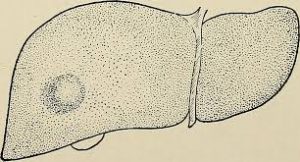 The little is one of the most important organs in the body, responsible for filtering blood and detoxifying. However, under certain circumstances, the liver or some suction thereof must be removed from the body. But what exactly does the liver do? Why would the liver need to be removed? And what should you expect from liver surgery and recovery?
The little is one of the most important organs in the body, responsible for filtering blood and detoxifying. However, under certain circumstances, the liver or some suction thereof must be removed from the body. But what exactly does the liver do? Why would the liver need to be removed? And what should you expect from liver surgery and recovery?
The Role of the Liver
The liver is located on the right side of the abdomen underneath the rib cage. The primary responsibility of the liver is blood filtration and chemical detoxification or absorption. Additional proteins and enzymes are also created in the liver. Drugs, including painkillers, some supplements, and alcohol are all processed by the liver. In addition, bile that is stored in the gallbladder is created by the liver. Bile is used in digestion and breaks down fats in order to allow them to be absorbed for use by the body.
When the Liver Must be Removed
There are many conditions that can seriously affect the effectiveness of the liver. Overexposure to chemicals or drugs can, over time, slow down and weaken the liver. Viral infections, such as hepatitis, can also seriously weaken the liver. One of the most common circumstances that require liver surgery is the presence of cancer. Anytime cancer is present within one section of the body, there is a threat of metastasis, or spreading of cancer. Gallstones can also lodge within the liver and cause obstruction, requiring surgical intervention. There are a few key considerations to be taken into account before liver surgery is suggested, though. Because the liver is so essential to many necessary functions, as much of the liver should stay in the body as possible. In addition, people with weakened immune systems may have difficulty recovering from surgery as demanding as liver surgery can be.
Surgery and Recovery
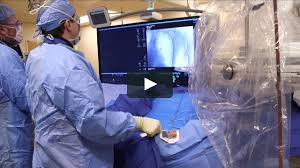 Before deciding that liver surgery is a necessity, a doctor will most likely want to perform a thorough medical examination and discuss your needs. For example, your doctor will likely want to know about your current medications, diet, and exercise regimen. Because of the critical nature of the liver, your doctor will want to be sure that this is the best course of action. Prior to the surgery, your surgeon will most likely advise you to avoid food and drink within the few hours before the surgery. During the surgery itself, we will make a small incision in the abdomen and remove as little of the liver as possible. One of the most important things to consider when selecting a surgeon is experience. We have first-hand experience with liver surgery and know exactly what to do.
Before deciding that liver surgery is a necessity, a doctor will most likely want to perform a thorough medical examination and discuss your needs. For example, your doctor will likely want to know about your current medications, diet, and exercise regimen. Because of the critical nature of the liver, your doctor will want to be sure that this is the best course of action. Prior to the surgery, your surgeon will most likely advise you to avoid food and drink within the few hours before the surgery. During the surgery itself, we will make a small incision in the abdomen and remove as little of the liver as possible. One of the most important things to consider when selecting a surgeon is experience. We have first-hand experience with liver surgery and know exactly what to do.
After the surgery has been completed, it is usually expected that the doctor will want to keep close supervision on your recovery. The average and expected recovery time in-house is only around a week, but it will take a few weeks until you feel the same. Some things, such as strenuous physical exercise and heavy lifting, should be avoided to limit the risk of incision site agitation. Your surgeon will likely give you specific recommendations about your diet and intake. After losing a section of the liver, your tolerance of medications, alcohol, and other drugs will change. It will be important to discuss your needs with your doctor and communicate regularly.
Does your liver need to be removed? Talk to the best surgeons in NYC for a consultation today.
For more information, visit our website: LenoxHillSurgeons.com
———
References:
https://www.mskcc.org/cancer-care/patient-education/about-your-liver-surgery
https://www.cancer.org/cancer/liver-cancer/treating/surgery.html
https://surgery.ucsf.edu/conditions–procedures/liver-resection.aspx
Liver Cancer Surgery: Steps, Benefits, Side-Effects, Precautions & Prognosis
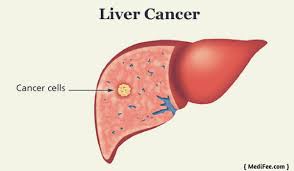 When an area of the human liver is surgically removed, it is known as the liver resection. The most typical reason for such operative procedures is to eliminate metastases of the liver, i.e., liver cancer. Metastases are essentially cancer-causing cells that have propagated from the liver to another area inside the body. Liver resection surgery is also recommended for benign liver problems.
When an area of the human liver is surgically removed, it is known as the liver resection. The most typical reason for such operative procedures is to eliminate metastases of the liver, i.e., liver cancer. Metastases are essentially cancer-causing cells that have propagated from the liver to another area inside the body. Liver resection surgery is also recommended for benign liver problems.
Steps
A liver surgery could either be laparoscopic, also known as minimally invasive, or traditional/open. The two major types of surgery for treating early liver cancer are as follows.
- Liver resection/lobectomy
Removing the cancerous and also the surrounding tissues in one’s liver is called a resection. When a lobe of the patient’s liver is removed, it is known as lobectomy/hemi-hepatectomy. - Liver transplant
It is performed in patients with HCC or hepatocellular liver cancer.
Benefits
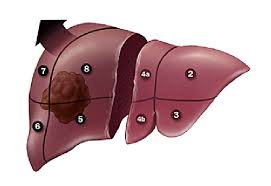 Resection means the partial or total removal of a body organ. The human liver’s phenomenal regenerative ability permits it to continue working, even when some parts of this vital organ are removed. Liver resection provides the best opportunity for long-term survival or even cure for patients with liver cancer. Removing a malignant tumor from one’s liver is the surest way of:
Resection means the partial or total removal of a body organ. The human liver’s phenomenal regenerative ability permits it to continue working, even when some parts of this vital organ are removed. Liver resection provides the best opportunity for long-term survival or even cure for patients with liver cancer. Removing a malignant tumor from one’s liver is the surest way of:
- Eradicating the cancer
- Preventing its growth to other regions of the body
- Curing cancer or extending one’s life expectancy
Side-Effects
- Excessive bleeding is pretty much standard for up to forty-eight hours post-surgery
- Acute (generally occurring in the first one to two weeks post-operation) or chronic (very rarely happening after a year post-surgery) rejection of the transplanted liver by the patient’s immune system
- Infection
- Sleep disturbances
- Depression and anxiety
Precautions
Wound care:
- The patient should religiously follow the instructions provided by the caregiver.
Care provider should be contacted if the:
- Patient has a fever
- Wound is swollen, warm, and red
- Region surrounding the wound is painful and does not subside with medication or rest
- Stitches are found to be becoming loose
- Patient is experiencing trouble breathing or chest pain and which is becoming worse over time
- Patient is not able to ingest and is losing weight
- Foul smelling leakage is oozing from the wound
- Experiencing severe pain in the upper abdomen
- Skin of the patient is turning yellow, or the eyes are becoming white
- Wound is bleeding continuously and without any cessation
- Patient is experiencing new and sudden pain in one’s chest, which intensifies at the time of coughing or taking deep breaths, and may also cough up blood
- One has difficult breathing and suddenly feels lightheaded
- One’s leg or arm feels painful, tender, and warm; and may even appear red and swollen
Prognosis
The (National Cancer Institute’s Surveillance, Epidemiology, and End Results) SEER database classifies cancer cases into the following summary stages:
- Thirty-one in every hundred patients with localized liver cancer
- Eleven in every hundred patients with regional liver cancer
- Three in every hundred patients with distant liver cancer
Note: The figures mentioned above indicate to the five-year survival rate in all the three stages.
Conclusion
Surgical resection is usually recommended for patients diagnosed with major and minor liver tumors. Mortality and morbidity rates have increased for sure, after the recently growing trend of applying newer surgical procedures like laparoscopic liver resection using radio-frequency ablation to transect liver parenchyma.
Contact us today to schedule an appointment and get the required care as soon as possible.
References
- https://www.ncbi.nlm.nih.gov/pmc/articles/PMC2828596/
- https://www.cancerresearchuk.org/about-cancer/liver-cancer/treatment/surgery/liver-transplant/problems-after-surgery
- https://www.drugs.com/cg/liver-resection-aftercare-instructions.html
- http://www.upmc.com/SERVICES/LIVER-CANCER/TREATMENTS/SURGICAL-RESECTION/Pages/default.aspx
- https://www.cancerresearchuk.org/about-cancer/liver-cancer/treatment/surgery/types-surgery
Possible Problems Stemming from Liver Surgery
 The liver is a vital organ in the body and it performs a number of crucial functions. This organ is responsible for making, breaking, and storing substances. It helps with all sorts of bodily functions such as digestion, blood clotting, and the storage of fat and glucose. This is just part of the functions that this vital organ provides, which is why it is important to keep your liver in the best condition possible.
The liver is a vital organ in the body and it performs a number of crucial functions. This organ is responsible for making, breaking, and storing substances. It helps with all sorts of bodily functions such as digestion, blood clotting, and the storage of fat and glucose. This is just part of the functions that this vital organ provides, which is why it is important to keep your liver in the best condition possible.
If you do have a medical problem that affects the liver, you may have to undergo liver surgery. The liver is an organ that we cannot live without so any conditions that have a major effect could result in the need for surgery. This can be major surgery and as with all major surgical procedures, it can come with risks. It is important to familiarize yourself with the possible risks so that you are fully prepared for your procedure.
Some of the main risks of liver surgery
 There are a number of potential risks and side effects that can stem from having liver surgery. Some of the ones that you should bear in mind if you are having this type of surgery include:
There are a number of potential risks and side effects that can stem from having liver surgery. Some of the ones that you should bear in mind if you are having this type of surgery include:
- Severe bleeding: Because of the amount of blood in the liver, an operation could result in heavy bleeding when the organ is cut. However, expert surgeons have the techniques and skills to minimize on this risk.
- Leakage of bile: Another risk during a liver operation is the possibility of bile leakage. The liver contains a number of bile ducts and the bile can leak from these once a cut has been made to the surface of the organ. This is a relatively rare occurrence and in most cases it sorts itself out without the need for additional treatment.
- Liver failure: If you have a section of the liver removed because of conditions such as cancer, the amount of the organ that is left behind may not be sufficient for your body. This could then lead to liver failure. This is one of the most serious possible problems connected to this type of surgery.
- Infections: As with many major surgical procedures, there is a risk of infection when you have liver surgery. This could include one of a range of infections or even multiple infections such as chest infections, abdominal infections, and infections of the wounds. In most cases, antibiotics are used to treat these.
Speak to the Best General Surgeon in NYC
Contact us at 646-846-1136 to schedule an appointment.
What to Expect After a Liver Resection
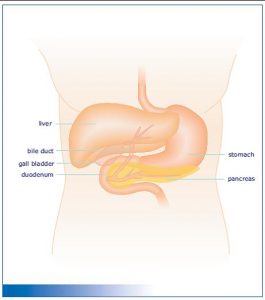 A liver resection is a surgery to remove part of a patient’s liver. The liver is unique among all the interior organs in the human body in that it is capable of regenerating, meaning as much as 50 per cent of the liver can be removed during a resection; so long as the other half is healthy, the organ will regenerate over time.
A liver resection is a surgery to remove part of a patient’s liver. The liver is unique among all the interior organs in the human body in that it is capable of regenerating, meaning as much as 50 per cent of the liver can be removed during a resection; so long as the other half is healthy, the organ will regenerate over time.
Immediately After Surgery
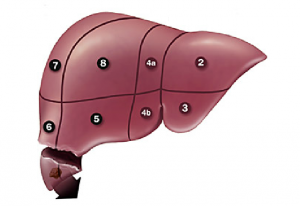 To access the liver, doctors need to make an incision in the patient’s belly. When the right side of a liver is removed, the gallbladder needs to be removed to allow access.
To access the liver, doctors need to make an incision in the patient’s belly. When the right side of a liver is removed, the gallbladder needs to be removed to allow access.
It is normal for the patient’s belly to be tender and sore for a little while and painkillers might be prescribed. The pain usually subsides after a few weeks, but during that time patients may also experience nausea, irregular bowel movements, constipation, and diarrhea. A small percentage of patients experience a fever and feel persistently tired, weak, and ill.
It is also common for patients to experience numbness around the wound following liver surgery NYC, but this usually wears off over time, although there will always be some numbness where the incision was made and this is perfectly normal.
Recuperating at Home
 Once you leave the hospital, it is important that you observe certain precautions. Make sure you get plenty of rest. It is during sleep and relaxation that your body does most of its repair work. You might find yourself becoming tired more easily for a little while and you should always rest when you feel tired; try to do some light exercise, such as going for a short walk, every day. Conversely, avoid strenuous exercise until your doctor clears you for it.
Once you leave the hospital, it is important that you observe certain precautions. Make sure you get plenty of rest. It is during sleep and relaxation that your body does most of its repair work. You might find yourself becoming tired more easily for a little while and you should always rest when you feel tired; try to do some light exercise, such as going for a short walk, every day. Conversely, avoid strenuous exercise until your doctor clears you for it.
It is usually a good idea to wait until at least eight weeks, unless your doctor says otherwise, before doing any heavy lifting. You may find that coughing produces a sharp pain around the area of the incision. If so, try holding a pillow over your stomach when you cough to lessen the pain.
Complications
You should dial 911 if you have any of the following symptoms: losing consciousness, respiratory trouble, sudden chest pain and accompanying shortness of breath, or a severe pain in the belly. These could indicate internal problems and are potentially life-threatening.
For further information, drop into one of our liver surgery NYC clinics for a consultation with one of our doctors.
















